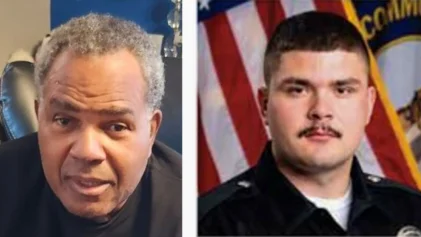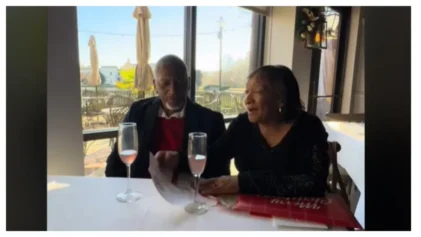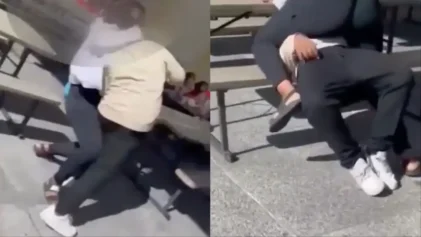New court documents reveal Memphis police had more evidence that could have been used to identify the man who raped a Black woman nearly a year before he kidnapped and killed a billionaire heiress.
The amended lawsuit filed by Alicia Franklin alleges Memphis Police interviewed the then girlfriend of Cleotha Abston-Henderson shortly after Franklin reported her rape to authorities in September 2021.
According to the court documents obtained by Atlanta Black Star, investigators learned the suspect’s first name, information about two cars he had access to and where he lived from his girlfriend.
One of the cars matched the description of the vehicle used in Eliza Fletcher’s kidnapping and the one Franklin gave investigators. But Memphis police did not run Franklin’s rape kit into the FBI database to look for a match until Abston-Henderson was arrested for the crime against Fletcher early last month. It took them 18 hours to solve the wealthy white woman’s case.
Franklin’s attorneys pointed out that her rape happened right across the street from where the man’s ex-girlfriend lives. Police also nabbed him for the Fletcher kidnapping doors away in the same apartment complex where the Black woman was victimized.
“Typical investigation of a crime scene, whether it be rape or murder or some other crime, one of the primary investigative techniques is to canvas the neighborhood, they did not do that, and there he was, basically next door,” Franklin’s attorney Gary Smith said.
The Tennessee Bureau of Investigation expedited the DNA search from Fletcher’s case but did not run DNA from Franklin’s rape until two days after Abston-Henderson was arrested, despite the slew of evidence Franklin gave them after her Sept. 21, 2021 rape. Abston-Henderson had an existing criminal record that included rape and kidnapping, and his DNA was already in the database, the lawsuit says.
The complaint alleges the Memphis detectives failed to investigate Franklin’s “rape adequately and use due diligence.”
Franklin reported her sexual assault as soon as she left the scene. She agreed to a medical examination from which authorities gathered the evidence for the rape kit. She also gave investigators the man’s first name, telephone number and social media information. Franklin told officers she met “Cleo” on the dating app PlentyOfFish, which has a special portal for law enforcement inquiries.
The amended complaint also says Franklin identified a photo of the suspect from decades ago in a lineup. Still, authorities promised to get an updated image for her to review, which never happened.
“Despite the MPD knowing Abston’s full name and having access to his extensive criminal record, the MPD failed to obtain an up-to-date photograph from the Tennessee Department of Correction or from another source,” the complaint says. “Moreover, the MPD failed to bring Abston in for questioning.”
The suspect’s ex-girlfriend had also contacted police to tell them where he moved after they broke up sometime later. Abston-Henderson was released from prison in November 2020 after serving time for a local attorney’s kidnapping and robbery. He also had an extensive juvenile record that included rape.
The lawsuit alleges that the information Franklin and the suspect’s ex-girlfriend gave police and the photo ID was enough to establish probable cause to arrest the man in September 2021. Investigators also did not screen the apartment where the rape occurred or the victim’s belongings for forensic evidence.
Abston-Henderson was arrested for Franklin’s rape on Sept. 9. Fletcher was last seen jogging near the University of Memphis on Sept. 2. The lawsuit alleges if Memphis police had acted on the evidence last year, Fletcher’s death this September could have been avoided.
“They had more than enough evidence that night when they interviewed to get him off the street,” Franklin told Good Morning America.


